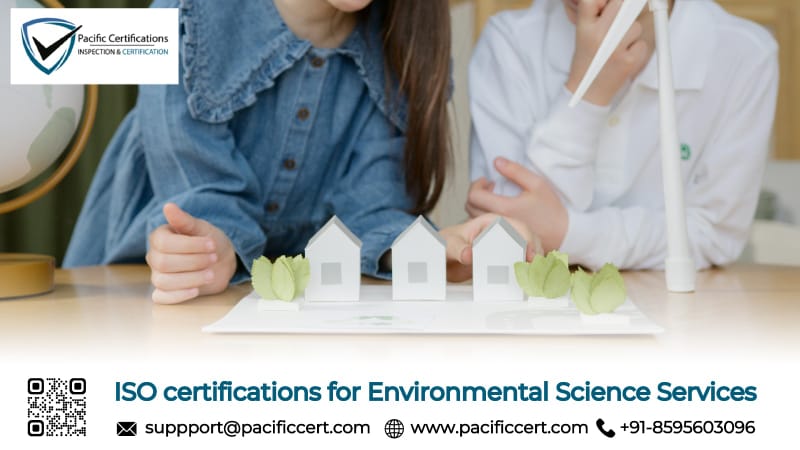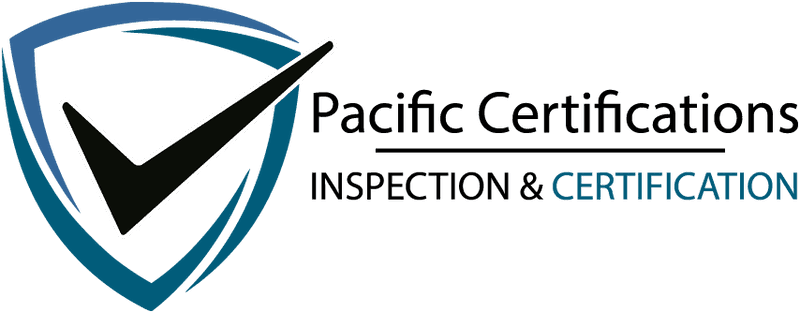ISO Certifications for Environmental Science Services, Requirements and Benefits

Introduction
Environmental science service providers operate in a highly regulated and impact-driven environment where scientific accuracy, regulatory compliance, environmental integrity, and data credibility directly influence public policy, project approvals, and societal outcomes. These services support critical activities such as environmental impact assessments, climate studies, biodiversity analysis, pollution monitoring, sustainability reporting, remediation planning, and regulatory advisory across public and private sectors.
Environmental science organizations routinely work with sensitive ecological data, regulatory submissions, laboratory and field measurements, stakeholder consultations, and long-term monitoring programs. ISO certifications have therefore become an essential framework for environmental science service providers to demonstrate structured governance, reliable scientific processes, data integrity, safety controls, and compliance with national and international environmental obligations.
In environmental science, credibility depends not on intent, but on evidence, discipline, and accountability.
Quick Summary
ISO certifications provide environmental science service providers with internationally recognized frameworks to manage quality through ISO 9001, environmental responsibility through ISO 14001, occupational health and safety through ISO 45001, information security through ISO/IEC 27001, business continuity through ISO 22301, and laboratory or service reliability through structured management systems. These certifications help organizations strengthen scientific governance, improve regulatory acceptance, reduce operational risk, and build trust with regulators, clients, and communities.
For more information on how we can assist your environmental science organization with ISO certifications, contact us at [email protected]
Applicable ISO Standards for Environmental Science Services
Below are the most common ISO standards applicable to environmental science service providers:
ISO 9001:2015 - Quality Management Systems
ISO 9001 supports structured planning, execution, review, and continual improvement of environmental studies, assessments, monitoring programs, and advisory services. It helps ensure that scientific methodologies, reporting processes, and stakeholder communications remain consistent and defensible.
ISO 14001:2015 - Environmental Management Systems
This standard is particularly relevant to environmental science organizations, as it provides a framework to manage environmental aspects, regulatory obligations, sustainability objectives, and continual improvement in environmental performance.
ISO 45001:2018 - Occupational Health and Safety Management Systems
ISO 45001 helps manage risks associated with field sampling, laboratory analysis, hazardous materials, site inspections, and remote or high-risk environments where environmental scientists frequently operate.
ISO/IEC 27001:2022 - Information Security Management Systems
ISO/IEC 27001 enables protection of environmental datasets, monitoring records, impact assessment reports, geospatial data, and client or government information from loss, misuse, or unauthorized access.
Click here to find out more applicable standards to your industry
What are the requirements of ISO Certifications for Environmental Science Services?
Environmental science service providers seeking ISO certification must establish and maintain documented policies, procedures, and records aligned with the selected ISO standards. Key requirements include the following:
ISO 9001:2015 – Quality Management Systems Requirements
Establish and maintain a documented quality management system
Define service scope, methodologies, and quality objectives
Control data collection, analysis, and reporting processes
Monitor performance and manage nonconformities
Implement continual improvement practices
ISO 14001:2015 – Environmental Management Systems Requirements
Establish an environmental policy aligned with organizational activities
Identify environmental aspects and compliance obligations
Set measurable environmental objectives and controls
Monitor environmental performance and regulatory compliance
Conduct management reviews and continual improvement
ISO 45001:2018 – Occupational Health and Safety Management Systems Requirements
Establish an OH&S policy suitable for field and laboratory work
Identify hazards related to sampling, site access, and equipment use
Assess risks and implement preventive controls
Ensure compliance with health and safety legislation
Monitor and improve OH&S performance
ISO/IEC 27001:2022 – Information Security Management Systems Requirements
Establish and maintain an information security management system
Conduct risk assessments for environmental data and IT systems
Implement access controls and data protection measures
Secure data shared with regulators and clients
Monitor and review ISMS effectiveness
Tip:Start by aligning your existing fieldwork procedures, data collection protocols, laboratory controls, and reporting workflows with ISO requirements to identify gaps early and ensure documentation reflects real scientific practice.
For further information on how we can assist your environmental science organization with ISO certifications, contact us at [email protected]
What are the benefits of ISO Certifications for Environmental Science Services?
ISO certifications are suitable for environmental consultancies, research organizations, monitoring agencies, sustainability advisory firms, and regulatory support services. Key benefits include:
Stronger credibility with regulators and authorities, supporting acceptance of environmental reports, assessments, and compliance submissions.
Improved consistency and defensibility of scientific outputs, reducing disputes, rework, and regulatory challenges.
Better control of environmental, safety, and operational risks, particularly during fieldwork and long-term monitoring projects.
Enhanced protection of environmental data and research records, supporting integrity, confidentiality, and traceability.
Improved readiness for audits, tenders, and funding reviews, especially for government and international projects.
Greater trust among communities, clients, and stakeholders, reinforcing transparency and professional accountability.
Environmental science services are experiencing heightened scrutiny as governments, investors, and communities demand stronger evidence, transparency, and accountability in environmental decision-making. Over the past five years, regulatory authorities in infrastructure, mining, energy, and urban development sectors have increased independent audits and third-party reviews of environmental studies by an estimated 35–45 percent, particularly for impact assessments and compliance monitoring. Public procurement frameworks now show that more than 60 percent of environmental consulting contracts require formal quality or environmental management certifications at the service provider level.
Climate change adaptation, biodiversity protection, and ESG reporting obligations are also reshaping expectations. Environmental science firms supporting sustainability reporting and climate risk analysis report growing demand for ISO-based governance, with over half of mid-to-large organizations now maintaining at least two ISO-certified management systems. By 2030, certification is expected to become a baseline requirement for firms involved in regulated environmental approvals, international funding programs, and cross-border projects, as certified organizations consistently demonstrate fewer regulatory rejections, stronger audit outcomes, and higher long-term contract retention.
How Pacific Certifications Can Help?
Pacific Certifications, accredited by ABIS, acts as an independent certification body for environmental science service providers by conducting impartial audits against applicable ISO standards. Our role is to objectively assess whether documented management systems and operational practices conform to international ISO requirements, based strictly on verifiable evidence and records.
We support environmental science organizations through:
Independent certification audits conducted in accordance with ISO/IEC 17021
Practical assessment of real field, laboratory, and reporting workflows
Clear audit reporting reflecting conformity status and certification decisions
Internationally recognized ISO certification upon successful compliance
Surveillance and recertification audits to maintain certification validity
Contact us
If you need support with ISO certification for your environmental science services, contact us at [email protected]or +91-8595603096.
Author: Ashish
Read More at: Blogs by Pacific Certifications

